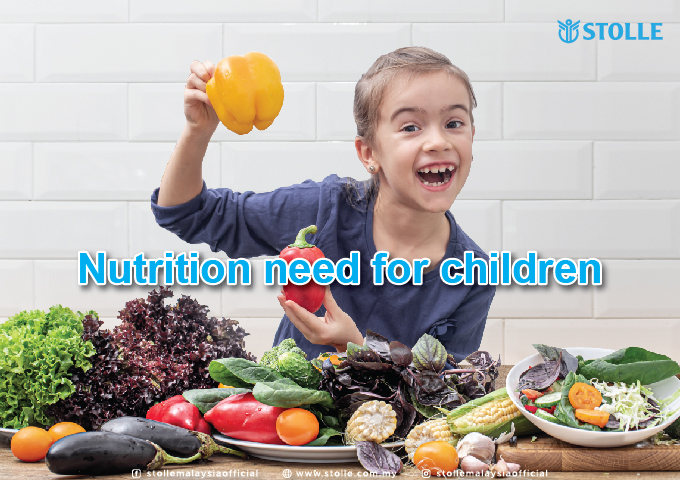

Nutrition needs For Children
Malaysian children commonly face issues with being overweight, while a portion also faces malnutrition. Therefore, understanding the recommended nutritional intake for children can support their overall health, ensuring adequate growth and development, maintaining a robust immune system, and preventing serious illnesses.
The required calorie intake for human growth and development comes from the diet, with the three major nutrients being protein, fat, and carbohydrates, constituting approximately 10-20%, 20-30%, and 50-60% respectively. Based on this, as children grow, their requirements vary slightly. Let's take a look at the nutritional needs of children at different age groups!
Infants in the early stages of growth and development benefit most from breast milk, as it contains various nutrients and antibodies closely related to infant growth and development. As babies gradually increase their intake of solid foods, typically around 6 months, introducing some single-ingredient complementary foods becomes feasible.
1-3 years old: Toddlers
- Protein: Each meal for infants should provide sufficient protein to support their rapid growth and development. According to the Malaysian Ministry of Health (MOH), toddlers aged 1-3 years old need approximately 10 grams of protein per day.
- Fat: Fat serves as the primary energy source required for the brain and nervous system development in infants and toddlers. It also helps maintain skin health and cell membrane structure. Data shows that breast milk, with its higher fat content, provides essential fatty acids to promote infant nervous system development.
- Vitamin D: Vitamin D is crucial for bone health as it aids in calcium absorption and utilization. As per the MOH recommendation, toddlers aged 1 year and above require at least 15 µg of vitamin D daily to ensure normal bone and teeth development.
- Iron: Iron is a component of hemoglobin and essential for transporting oxygen throughout the body. According to MOH data, toddlers aged 1 year old need 9 milligrams of iron per day to support the development and function of their blood system.
3-6 years old: Preschoolers
Children aged 3-6 years old are in a critical stage of growth and development, where a diverse and balanced diet ensures they receive all essential nutrients necessary for normal physical growth and development.
- Carbohydrates: Preschoolers are typically energetic, thus carbohydrates serve as their primary energy source. Insufficient carbohydrate supply can affect children's growth, development, and physical activity.
- Calcium: Calcium is a crucial nutrient for bone and teeth health. Data indicates that preschoolers aged 3-6 years old require approximately 700-1000 milligrams of calcium per day to support their bone growth and density.
- Vitamin A: Vitamin A is essential for vision development and immune system function. According to MOH, preschoolers aged 3-6 years old require approximately 400 micrograms of vitamin A daily to ensure healthy eyesight and immune system function.
- Dietary fiber: Dietary fiber aids in maintaining digestive system health and preventing constipation. MOH recommends preschoolers aged 3-6 years old to consume approximately 20-30 grams of dietary fiber daily to maintain intestinal health.
7-12 years old: School-aged children
Children aged 7-12 years old are in a crucial stage of growth and development where they require various nutrients to support physical and brain development, as well as maintain their immune system and overall health.
- Protein: Protein is essential for supporting muscle and tissue growth as school-aged children's bodies continue to develop. Children aged 7-12 years old require approximately 23-30 grams of protein per day.
- Carbohydrates: Carbohydrates are the main source of energy for school-aged children, supporting their daily activities and learning. Children aged 7-12 years old should control their carbohydrate intake to between 45-65% of total energy.
- Iron: Iron is one of the key nutrients needed by school-aged children as it is essential for the formation of hemoglobin and oxygen transport. Data suggests that children aged 7-12 years old require approximately 10 milligrams of iron per day to maintain a healthy blood system.
- Vitamin C: Vitamin C supports immune system function and tissue health. WHO recommends school-aged children aged 7-12 years old to consume approximately 35-65 milligrams of vitamin C daily.
Consider incorporating a glass of Stolle ImmNuPlus into children's daily diet (1 year old and above) , rich in milk nutrients, patented immune nutrients, and anti-inflammatory factors, directly supporting the immune system, reducing chronic inflammation, activating immunity, achieving immune balance, and guarding against disease threats.








